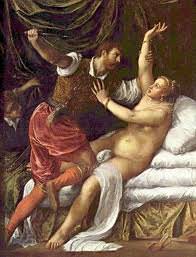Doctor of Philosophy, The University of Texas at Austin, December, (2009)
Abstract
The present study examines the rape episodes in Muslim and Christian historiography of the Iberian Peninsula between 9th and 13th century. These episodes possess a structure which the author defines as “rape tale.” The rape tale has a stock cast of characters—a rapist ruler, the female rape victim, and her avenging guardian, and a predictable ending: the ruler will be deposed. In the works studied in this dissertation, every version of the rape tales is part of a discourse that legitimates an occupation, an invasion, a conquest. The stable structure of the rape tale may reveal its mythic origins. It is possible that before these stories were put into writing, they were elaborated orally. The importance of these allegorical tales requires the necessity of memorization by means of oral repetition, which is possible only through a paring down of details in order to obtain a clear pattern. The images, the actions, must be formulaic in order to be recovered effectively. Characters—no matter their historicity—are simplified into types. Hence in all myths, heroes are brave and strong; princesses in distress are beautiful; tyrannical rulers, lustful. The myth studied here appears in chronicles and national/ethnic histories written by a community that saw itself as the winning character in a story of conquest—or Reconquest. It is a myth that features not one but two rape tales: the rape of Oliba (also known as Cava), daughter of Count Julian, which brought about the Moorish invasion of Spain, and the rape of Luzencia, which signaled a Christian rebirth with Pelayo’s rebellion.
The foundational rape tale in Medieval Iberia
Castellanos, María Rebeca
Doctor of Philosophy, The University of Texas at Austin, December, (2009)
Abstract
The present study examines the rape episodes in Muslim and Christian historiography of the Iberian Peninsula between 9th and 13th century. These episodes possess a structure which the author defines as “rape tale.” The rape tale has a stock cast of characters—a rapist ruler, the female rape victim, and her avenging guardian, and a predictable ending: the ruler will be deposed. In the works studied in this dissertation, every version of the rape tales is part of a discourse that legitimates an occupation, an invasion, a conquest. The stable structure of the rape tale may reveal its mythic origins. It is possible that before these stories were put into writing, they were elaborated orally. The importance of these allegorical tales requires the necessity of memorization by means of oral repetition, which is possible only through a paring down of details in order to obtain a clear pattern. The images, the actions, must be formulaic in order to be recovered effectively. Characters—no matter their historicity—are simplified into types. Hence in all myths, heroes are brave and strong; princesses in distress are beautiful; tyrannical rulers, lustful. The myth studied here appears in chronicles and national/ethnic histories written by a community that saw itself as the winning character in a story of conquest—or Reconquest. It is a myth that features not one but two rape tales: the rape of Oliba (also known as Cava), daughter of Count Julian, which brought about the Moorish invasion of Spain, and the rape of Luzencia, which signaled a Christian rebirth with Pelayo’s rebellion.
an occupation, an invasion, a conquest. The stable structure of the rape tale may reveal its mythic origins. It is possible that before these stories were put into writing, they were elaborated orally. The importance of these allegorical tales requires the necessity of memorization by means of oral repetition, which is possible only through a paring down of details in order to obtain a clear pattern. The images, the actions, must be formulaic in order to be recovered effectively. Characters—no matter their historicity—are simplified into types. Hence in all myths, heroes are brave and strong; princesses in distress are beautiful; tyrannical rulers, lustful. The myth studied here appears in chronicles and national/ethnic histories written by a community that saw itself as the winning character in a story of conquest—or Reconquest. It is a myth that features not one but two rape tales: the rape of Oliba (also known as Cava), daughter of Count Julian, which brought about the Moorish invasion of Spain, and the rape of Luzencia, which signaled a Christian rebirth with Pelayo’s rebellion.
Click here to read this article from The University of Texas at Austin
Subscribe to Medievalverse
Related Posts